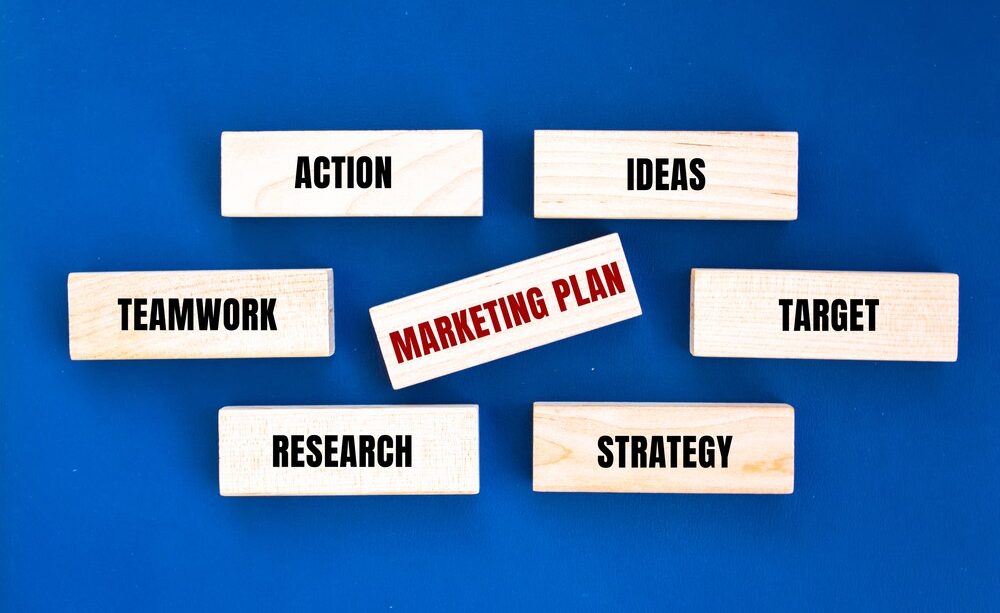Robotic Marketer: Unifying AI Strategy and Plan in Marketing
With 2024 expected to be the year AI matures, many businesses, including Robotic Marketer, are learning to utilize AI in their everyday processes. There’s been a lot written on the internet on AI marketing and in particular, AI marketing strategy. The distinction between an AI marketing strategy and an AI marketing plan is unclear for many businesses aiming to leverage artificial intelligence effectively. Both are integral to a company’s success but serve different purposes and require unique approaches.
AI Marketing Strategy: The Vision
An AI marketing strategy is the high-level blueprint. It defines how a business will use artificial intelligence to achieve its long-term marketing goals. It’s the cornerstone of your marketing efforts, laying out the broad objectives and the role AI will play in reaching them.
Key Components of AI Marketing Strategy:
1. Objective Definition: Clearly articulating what the business aims to achieve with AI. Whether it’s enhancing customer experience, personalizing marketing messages, or increasing operational efficiency.
2. Target Audience Analysis: Leveraging AI to deeply understand customer behaviors, preferences, and trends to tailor marketing efforts effectively.
3. Competitive Edge: Identifying how AI can provide a competitive advantage, whether through advanced customer insights, streamlined operations, or innovative customer touchpoints.
4. Ethical Considerations: Ensuring AI is used in an ethical manner, respecting customer privacy and adhering to regulations.
AI Marketing Plan: The Roadmap
While the strategy provides the vision, the AI marketing plan is the tactical roadmap that outlines the specific actions, tools, and resources needed to achieve the objectives laid out in the strategy. It’s about the “how” as opposed to the “why” and “what.”
Key Components of AI Marketing Plan:
1. Channel Strategy: Determining which channels (e.g., email, social media, digital ads) will be used and how AI will optimize these channels for better targeting and engagement.
2. Content Strategy: Utilizing AI for content creation, curation, and distribution, ensuring content is tailored and relevant to the target audience.
3. Technology Stack: Identifying and integrating the right AI tools and platforms that align with the marketing goals and budget.
4. Metrics and KPIs: Establishing measurable goals and key performance indicators to track the effectiveness of AI initiatives.
The Interplay: Strategy and Plan Flow
The most effective AI marketing initiatives understand the delicate balance and interplay between strategy and plan. The strategy is your north star, keeping you aligned with your ultimate goals, while the plan is your compass, guiding your day-to-day decisions and tactics. Together, they ensure that your marketing efforts are cohesive, targeted, and effective.
Realizing the Potential of AI in Marketing:
– Continuous Learning: AI is continually evolving. Staying abreast of the latest technologies and methodologies is crucial.
– Data-Driven Decisions: Both strategy and plan should be rooted in data analytics, ensuring decisions are informed and outcomes are measurable.
– Agility: Be prepared to pivot both your strategy and plan based on market changes, technological advancements, or shifts in consumer behavior.
AI Marketing Strategy and Marketing Plan With Robotic Marketer
Understanding the difference between an AI marketing strategy and an AI marketing plan is more than semantic. It’s about knowing how to effectively position your business in a competitive, AI-driven market. By distinguishing the documented aspects of the strategy from the actionable elements of the plan, businesses can harness the full potential of AI to not only reach but exceed their marketing goals. As AI in marketing continues to evolve, so too should your approach, always keeping the synergy between strategy and plan at the forefront of your AI marketing endeavors.
Robotic Marketer cleverly uses the fundamentals of AI marketing strategy and AI marketing plan, bringing them together in one platform, but also separating them for the various stakeholders in marketing departments.



